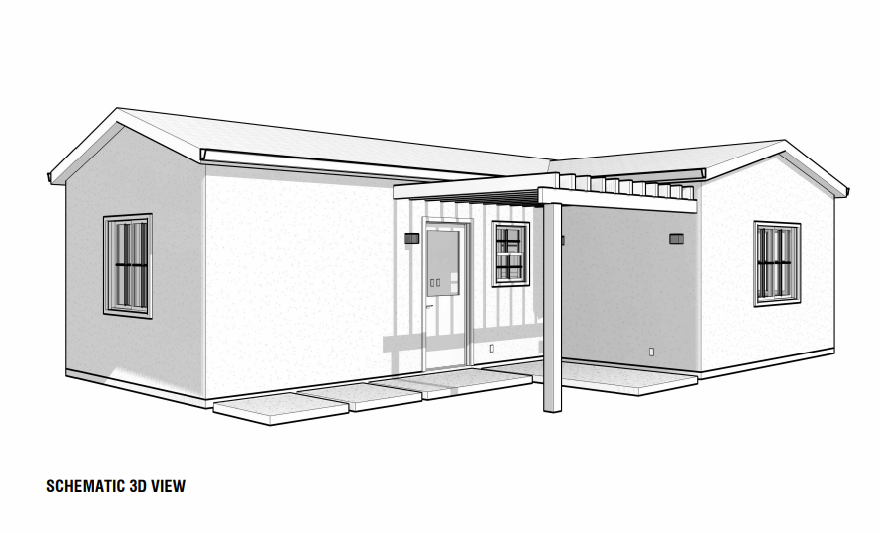Adding an Accessory Dwelling Unit (ADU) to your Portland property can provide numerous tax advantages. This comprehensive guide explores the potential tax benefits available to Portland homeowners who build an ADU, helping you maximize the financial advantages of your investment.
Property Tax Considerations for Portland ADUs
When you add an ADU to your property in Portland, your property value will increase, which typically results in higher property taxes. However, there are important considerations that can mitigate this increase:
Property Tax Reassessment
In Multnomah County, adding an ADU will trigger a property tax reassessment. However, Oregon's property tax system has some unique features that can work in your favor:
- Assessed Value vs. Real Market Value: Oregon's tax system often assesses property at a lower value than the actual market value
- 3% Annual Cap: Oregon law limits annual increases in assessed value to 3%, regardless of how much the market value increases
- New Construction Assessment: Only the value of the ADU itself (not your entire property) will be assessed at current market rates
Property Tax Exemption Programs
Portland homeowners may qualify for property tax exemption programs that can offset the increase from adding an ADU:
- Senior Property Tax Deferral Program: Homeowners 62 and older may defer property taxes if they meet income requirements
- Veteran's Exemption: Qualifying veterans may receive a property tax exemption
- Multiple-Unit Limited Tax Exemption: In certain zones, this program provides a 10-year property tax exemption on the residential portion of new multiple-unit housing
Income Tax Benefits for Rental ADUs
If you rent out your ADU, you'll realize significant income tax benefits:
Rental Income Deductions
You can deduct numerous expenses associated with your rental ADU, including:
- Mortgage interest: The portion associated with the ADU
- Property taxes: The percentage attributable to the ADU
- Insurance: Coverage specifically for the rental unit
- Utilities: Any utilities you pay for the ADU
- Repairs and maintenance: 100% deductible in the year paid
- Professional services: Property management fees, legal fees, accounting services
- Travel expenses: Costs associated with managing and maintaining the rental
- Advertising: Costs to market your rental
Depreciation: A Major Tax Advantage
Depreciation allows you to recover the cost of your ADU investment over time through annual tax deductions:
- Residential rental property: Depreciated over 27.5 years
- Example: For a $200,000 ADU, you could potentially deduct approximately $7,272 annually
- Component depreciation: Some components can be depreciated over shorter periods (5, 7, or 15 years)
- Land value: Not depreciable (only the structure itself)
Passive Activity Rules
Rental income is generally considered "passive income" by the IRS, with some important considerations:
- Passive loss limitations: Generally, passive losses can only offset passive income
- Active participation exception: If you actively participate in rental activities and your modified adjusted gross income is under $150,000, you may deduct up to $25,000 in passive losses against non-passive income
- Real estate professional status: If you qualify as a real estate professional, you may be able to deduct unlimited passive losses against all income types
Tax Benefits for Home Office ADUs
If you use your ADU as a dedicated home office, you may qualify for the home office deduction:
- Exclusive use requirement: The space must be used regularly and exclusively for business
- Principal place of business: The ADU must be your principal place of business or used to meet clients/customers
- Simplified option: Deduct $5 per square foot (up to 300 square feet)
- Regular method: Deduct the percentage of expenses based on the percentage of your home used for business
Capital Gains Considerations
When you eventually sell your property with an ADU, capital gains tax considerations come into play:
Primary Residence Exclusion
The IRS allows you to exclude up to $250,000 ($500,000 for married couples filing jointly) in capital gains from the sale of your primary residence if you've lived in it for at least two of the last five years.
ADU Capital Gains Treatment
How the ADU affects your capital gains tax depends on its use:
- ADU used as part of primary residence: Generally covered by the primary residence exclusion
- ADU used as rental: May require allocation between personal and rental use, potentially reducing the exclusion amount
- Depreciation recapture: Depreciation claimed will be "recaptured" and taxed at 25% when the property is sold
1031 Exchange Potential
In some cases, property with an ADU used exclusively as a rental may qualify for a 1031 exchange:
- Definition: A 1031 exchange allows you to defer capital gains taxes by reinvesting proceeds from the sale of an investment property into a "like-kind" property
- Requirements: Strict timelines and rules must be followed
- Mixed-use limitation: Only the portion used as investment property qualifies
Oregon-Specific Tax Considerations
Oregon Income Tax
Oregon has one of the highest state income tax rates in the country (up to 9.9%), making deductions particularly valuable for Portland residents.
Energy Tax Credits
While Oregon's Residential Energy Tax Credit (RETC) program has expired, other incentives remain available:
- Federal tax credits: For solar, energy-efficient windows, insulation, and HVAC systems
- Energy Trust of Oregon: Offers cash incentives (not tax credits) for energy-efficient construction
Working with Tax Professionals
Tax laws are complex and constantly changing, particularly as they relate to ADUs, which represent a relatively new housing category. Working with tax professionals who understand both real estate and Portland's specific tax environment is essential.
At Portland ADU, we can connect you with tax professionals who specialize in maximizing the tax benefits of ADU investments. Contact us to learn more about how an ADU can benefit your specific financial situation.

